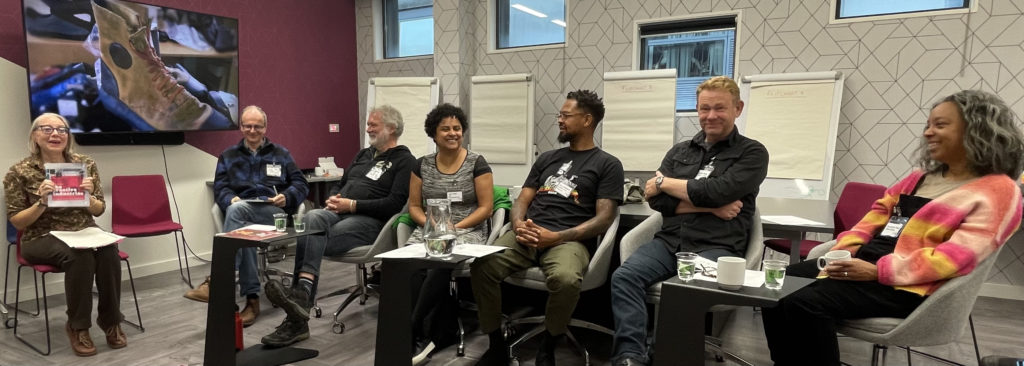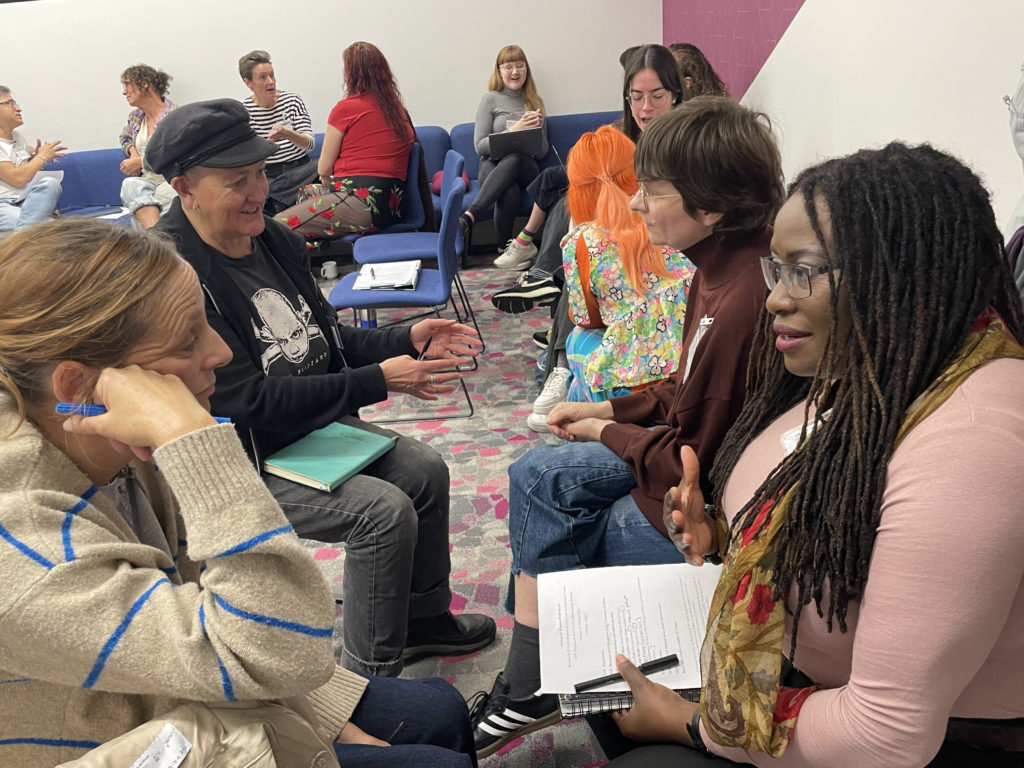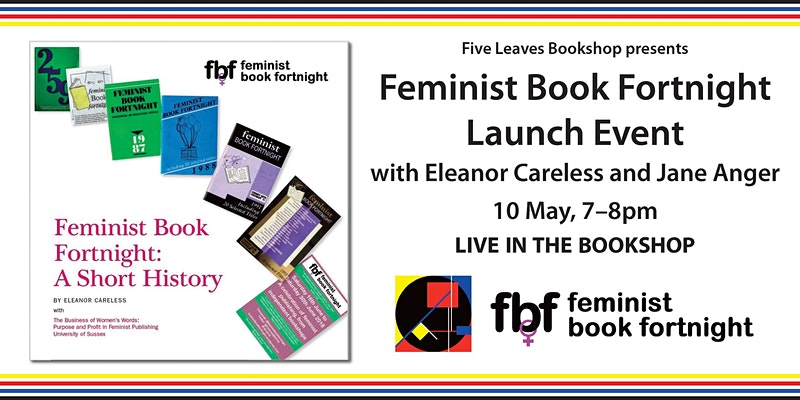The “Solving the Purpose-Profit Puzzle” event, held on 21st October 2024 at the Business & IP Centre (BIPC) Brighton & Hove, brought together a group of social entrepreneurs and business leaders to explore the challenges of balancing social purpose with profitability. Led by Professor Margaretta Jolly from the University of Sussex, whose research The Business of Women’s Words focuses on the intersection of feminist history and ethical business models, the event was organised in collaboration with BIPC. It featured a mix of tabled speakers from various sectors, including Afrori Books, Infinity Foods, New Internationalist, Vegetarian Shoes, Responsible Travel, and Boxless/BARCO, who shared their insights on navigating the tension between ethical business practices and the need for financial sustainability. Situated in Brighton & Hove’s vibrant creative cluster and its rich history of using alternative business models to address social issues, the event provided a platform for both academic reflection and practical exchange on how to succeed as a socially committed business.

The six tabled speakers presented a diverse set of perspectives from their respective industries. Carolynn Bain of Afrori Books discussed the importance of balancing community work and profitability, outlining her model of 60% “shameless capitalism,” 20% community work, and 20% passion projects to maintain the shop’s viability. Martyn Laidlaw from Infinity Foods explained that their business focuses on efficiency, high-quality products, and competitive pricing to remain successful as large supermarkets have entered the organic, vegetarian, and vegan food markets. Amy Hall from New Internationalist shared the unique multi-stakeholder cooperative structure with both workers and readers as co-owners, and described how they raise funds through community share offers to sustain their operations and support their global justice mission. Robin Webb of Vegetarian Shoes discussed their focus on creating environmentally friendly, vegetarian, and vegan shoes, noting that there is currently no perfect solution that simultaneously meets the demands of sustainability, affordability, and fashion in the footwear industry, but they are doing their best to find a balance between these priorities. Justin Francis from Responsible Travel discussed how tourism can transfer wealth to disadvantaged areas, and how they bridge inequalities in travel consumption through innovative tourism models, guided by understanding what they oppose and working toward the opposite. Bud Johnston of Boxless/BARCO suggested that traditional top-down decision-making structures in organisations, where a few at the top hold power, should be reversed. Instead, diverse ideas should come from the base of organisations.

During the collective discussions, participants identified key challenges in sustaining business longevity, such as financial instability, burnout, external pressures like COVID-19 and Brexit, and difficulties in scaling. To address these, participants shared strategies like community support, organic growth through social media, and collaborative decision-making. Despite the struggles, staying focused on their mission and passion helps drive these entrepreneurs forward. One interactive element had participants voted on action initiatives for social enterprises displayed on flipcharts by placing a sticker to show either general support or strong commitment to implementing an idea themselves. The most popular ideas included “aligning purpose with management practices”, “know your history”, and “own your compromises”. After a collective review of these actionable suggestions, including the support BIPC can offer through “Understand your intellectual property,” with new suggestions participants had added, such as “collaborate” and “be kind,” which emphasised the communal spirit required to succeed in social enterprise. The session concluded with participants writing down the actions they intended to take on postcards, which were then posted in the postbox as a meaningful commitment to future action, followed by lunch, which provided an opportunity for participants to further build connections. Ultimately, the entire event demonstrated that solving the purpose-profit puzzle is not about achieving a perfect balance but rather about constant, thoughtful adjustment and the willingness to support others along the way.
Lubing Chen has a Master’s in Cultural and Creative Industries from the University of Sussex and is currently working as a student curator on a collaborative project between the university and Queer East, an LGBTQ+ film festival. (LinkedIn: https://www.linkedin.com/in/lubing-chen/)




